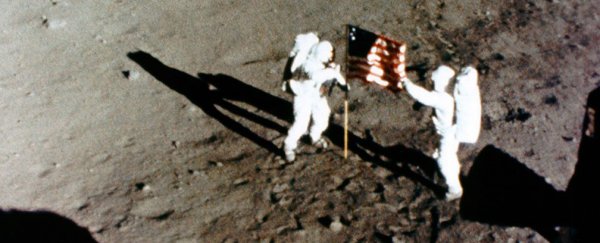Filling out paperwork is one of the pesky parts of business travel, and it doesn't seem to matter who you are or where you go – you've still gotta do it. On the plus side, it does give you the opportunity to claim back any personal expenses you incurred in the line of your work – a helpful cost-saving tip Buzz Aldrin is happy to share.
The former astronaut recently uploaded some of his personal Apollo 11 memorabilia to Twitter, including a travel expenses form dating from July 1969. The memorandum outlines the work-related expenses the second man on the Moon claimed after returning from what must surely be the world's most famous 'all expenses paid' business trip.
The expenses form details Aldrin's complete travel itinerary for the return voyage to the Moon, starting from his residence in Houston, from where he makes his way to Cape Kennedy, Florida. Once there, he switches transportation to a "Gov. Spacecraft" which takes him directly to the "Moon". After a couple of days there on the company dime, Aldrin travels to the "Pacific Ocean" before making his way home on the USS Hornet and a US Air Force plane.
Aldrin successfully claimed US$33.31 in total from NASA for personal expenses incurred on the trip, but ironically, the expenses form doesn't explicitly detail where these costs came from. It's believed they reflect car travel between various airports on the trip. Aldrin was the recipient of "Government meals and quarters… for all above dates", which is one of the reasons his personal outgoings were so low.
#TBT My mission director @Buzzs_xtina's favorite piece of my memorabilia. My travel voucher to the moon. #Apollo11 pic.twitter.com/c89UyOfvgY
— Dr. Buzz Aldrin (@TheRealBuzz) July 30, 2015
In addition to the travel expenses documentation, Aldrin also shared on Twitter the customs declaration form he and fellow astronauts Neil Armstrong and Michael Collins were obliged to submit on returning to the United States. The form shows they declared "MOON ROCK AND MOON DUST SAMPLES" were being brought into the country.
For the purposes of a health declaration, the returning trio indicated that they weren't suffering from any illnesses but left another question answered more ambiguously (and even ominously). In recognition that scientists of the time had little idea what exposure to the lunar environment may have ultimately had on the astronauts, the form reads: "Any other condition on board which may lead to the spread of disease: TO BE DETERMINED".
